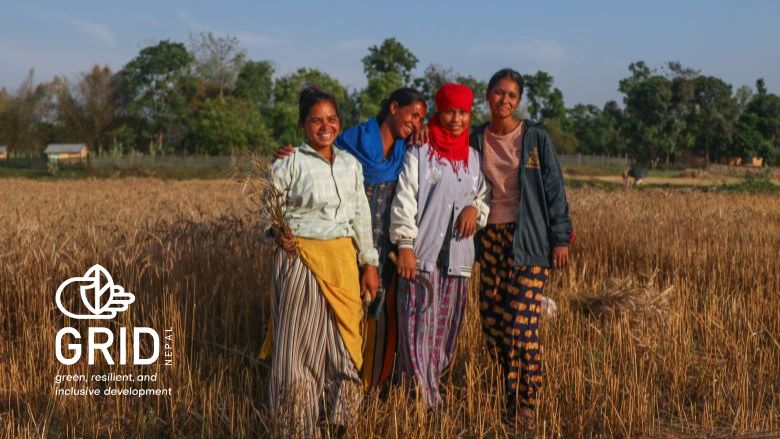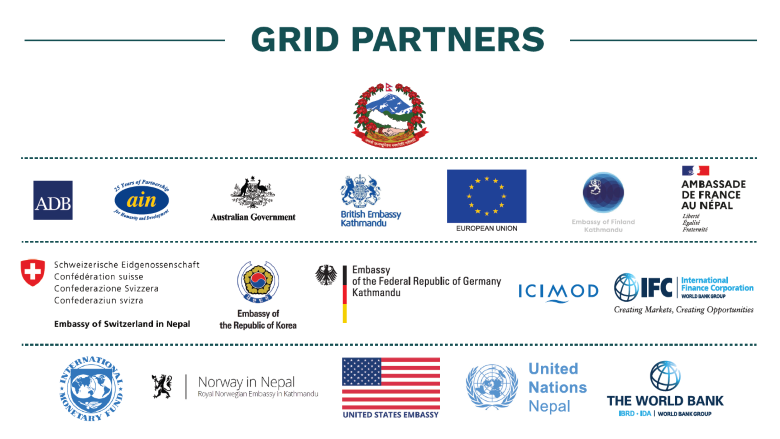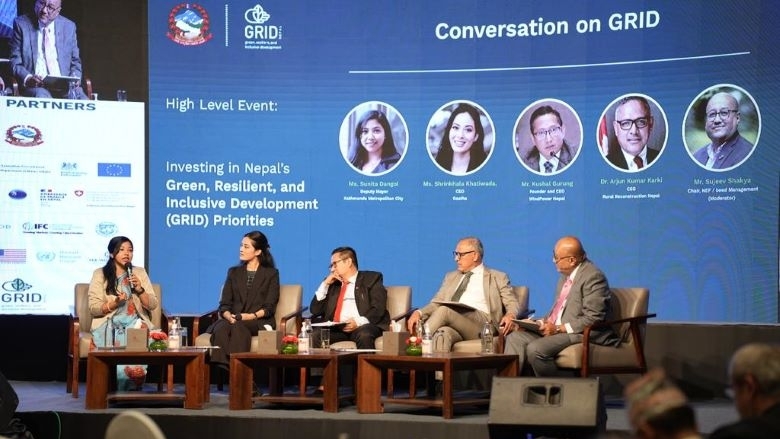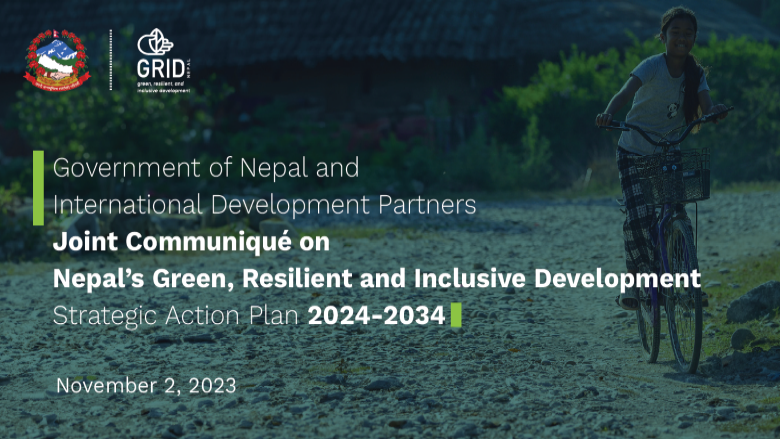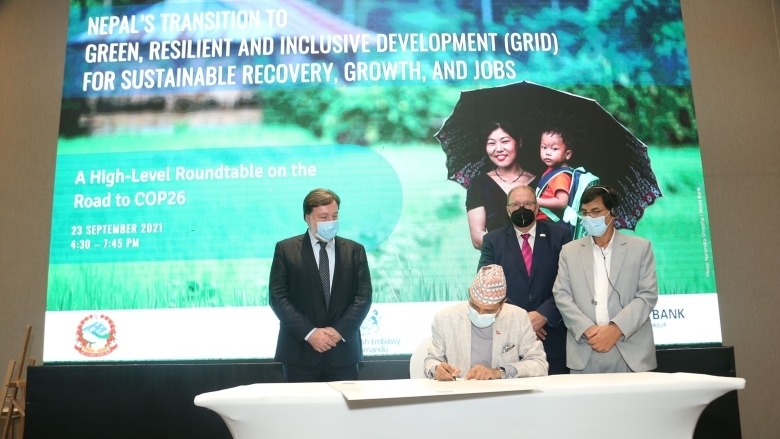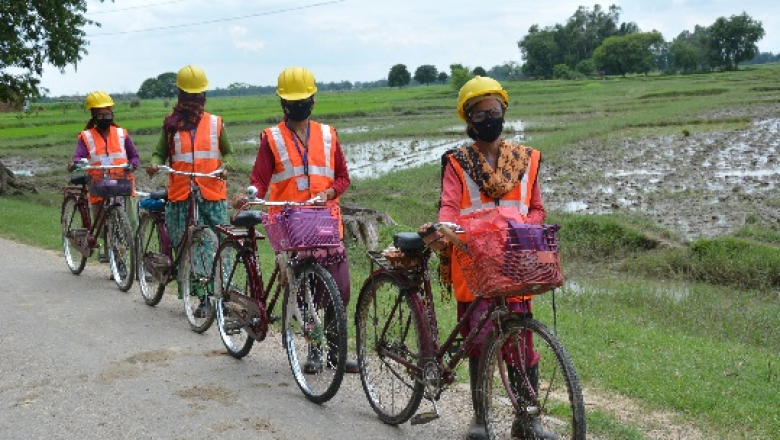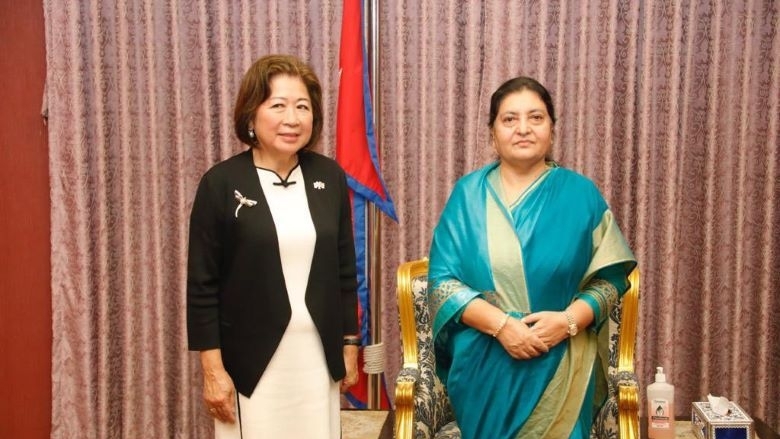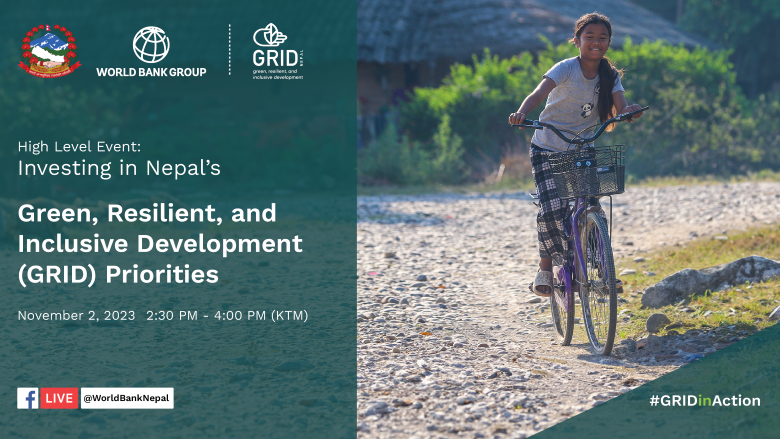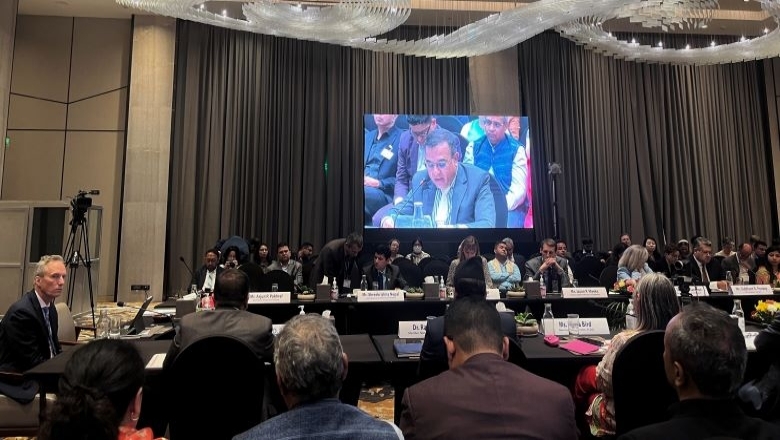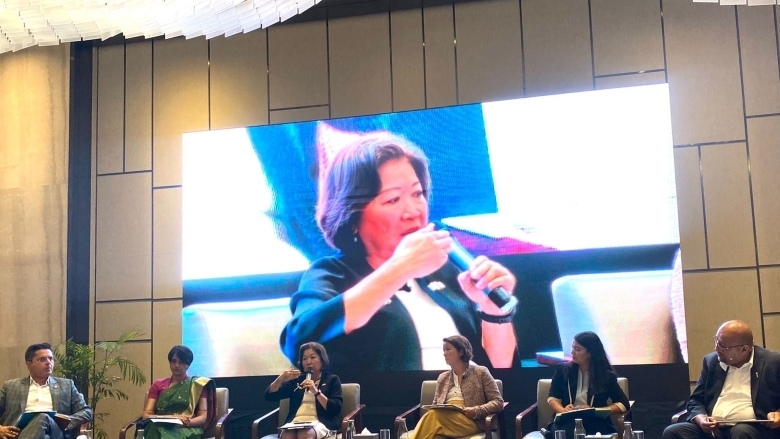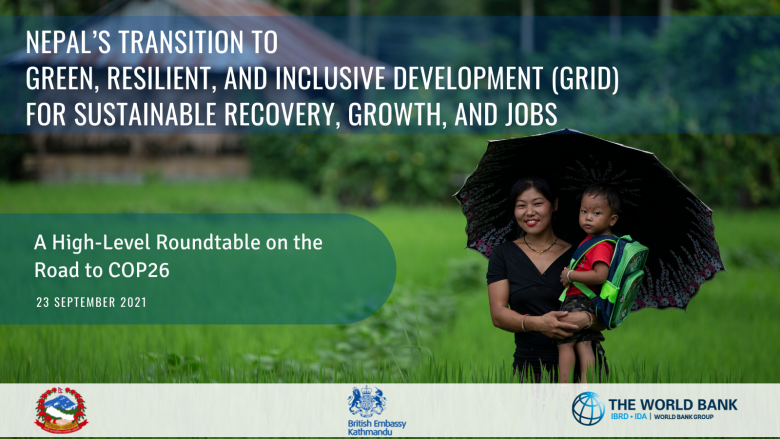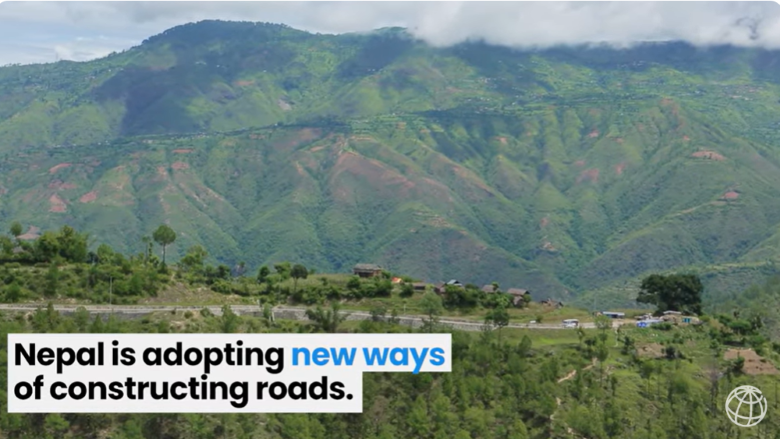Download GRID flyer in English
Download GRID flyer in Nepali
Nepal is shifting to a green, resilient, and inclusive development (GRID) path.
Economic development in Nepal faces a set of complex inter-related challenges, including a jobless and slow-paced economic recovery from COVID-19, a changing climate, environmental degradation, and persistent poverty and social exclusion. Addressing these challenges simultaneously and systematically is necessary to build a better-performing economy. This approach is embedded in the GRID partnership platform.
Given the urgency and magnitude of these crises, good investments and policy implementation need to be accelerated, while creating inclusive opportunities and green jobs – especially for the poor and vulnerable who are disproportionately impacted by climate change and unsustainable use of natural capital.
The endorsement of the Kathmandu Declaration on GRID in September 2021 by the Government of Nepal and 16 Development Partners marked the moment that Nepal adopted the GRID approach. It identified an indicative US$7.4 billion of on-going and future support. Since then, Nepal and its partners established a long-term GRID platform to scale up and align investments, enhance the policy environment, and convene institutions and information.
